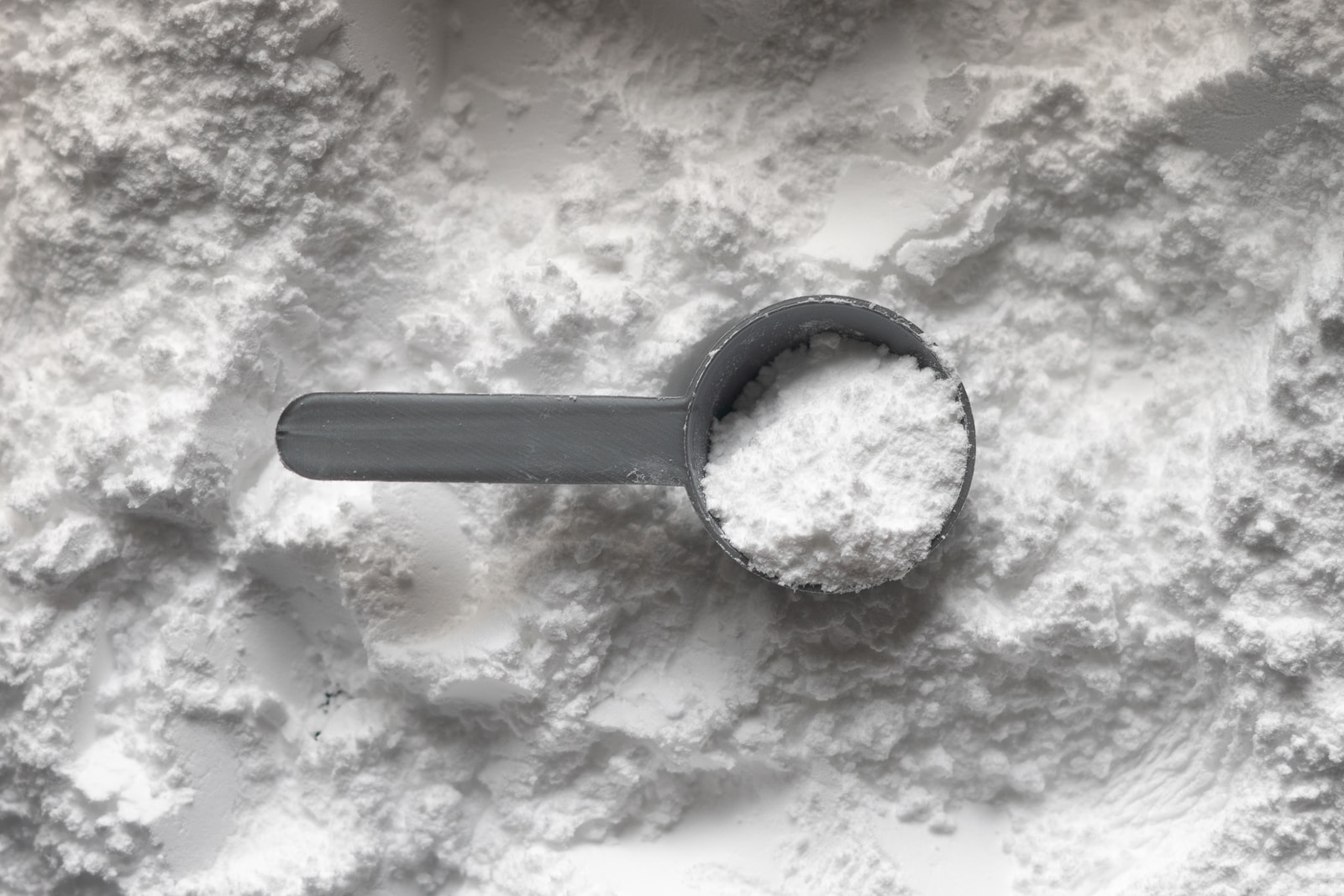What Are Supplemental Probiotics Doing for Your Horse?

Probiotics are one of the largest revenue segments in the horse industry worldwide. Walk into any feed or tack store and more shelf space is dedicated to probiotics than any other supplement.
Horse owners are pouring daily doses of supplemental probiotics into their horses by topping their feed or buying feed fortified with probiotics but is it really helping?
Let’s look at some facts and you can make your own call.
What Are Probiotics?
Probiotics are the friendly microorganisms that reside in the guts of all living creatures to help digest and process food. These bugs become highly specialized to particular types of nutrients and so come in a variety of strains each suited best for what it is they are eating.
In horses there are different bugs to process proteins, vitamins, minerals and carbohydrates. Most of these bugs hang out in the small intestine and the environment is balanced to support them and keep them happy campers.
But the bugs that contribute most to our equine companions are the bugs that hang out in the hindgut because these are the critters that do most of the work by breaking down all the fibrous material that gets dumped into the cecum to be fermented.
That’s right, fermented. The cecum is a muscular fermentation vat that is a home to many billions of little bugs that consume fiber before pooping out beneficial byproducts for the horse to utilize. The most significant of these byproducts are volatile fatty acids which the horse uses for energy and stores as fat.
Probiotics are also living organisms just like our horse so they are designed to stay healthy and make billions of little baby bugs who will go off and start their own colonies. Anyone remember the TV show “Leave it to Buggy”? No, me neither. This is why the unit of measure for direct fed microbials (scientist for probiotic aka DFM if you’re a cool science cat) is CFU or Colony Forming Unit.
Horses require healthy colonies of probiotics in order to thrive and in fact survive but are we doing anything if we give them EXTRA?
Where Do Horses Find Probiotics?
Since there is no doubt that horses need a bunch of probiotics to be healthy (1,000,000,000,000,000 that’s one million billion) how did they survive for the 49,999,960 years before we started feeding them to our horses?
Forage. Probiotics are yeast cells that have been naturally occurring in nature since the beginning. They float around in the air. Thankfully some cave woman who had a covered bowl of wild berries that she forgot about in the back of the cave for a few months and decided that she’d see how they tasted. That’s how the cocktail party was invented. There may also be a correlation in a rise in human birthrates but that’s not my area.
These yeast cells land on grass that is consumed by horses as pasture or hay and every day a healthy horse consumes around 300 billion CFU per pound of hay.
If you have a healthy horse eating 2% of it’s bodyweight in forage throwing a scoop of your favorite probiotic onto its feed is a complete waste of money.
There Are Times When Supplemental Probiotics Help
You should have noted the use of the term “healthy horse” several times in this article. There is never a time when supplemental probiotics have any benefit to a healthy horse. None. Adding probiotics to the diet of a healthy horse has one benefit, it makes the probiotic company rich.
But what about the horse that isn’t “healthy”?
Malnourished Horses
Healthy horses replenish their probiotic colonies by eating forage but when a horse is denied forage it doesn’t have access to those bugs.
In the case of malnourished horses we want to do what we can to help get the colonies restarted. Of course the first objective in neglect cases is to get the horse back on plenty of forage but some supplemental probiotics are called for.
Horses Prescribed Antibiotics
Trigger has be diagnosed with Lyme’s so the vet will start some high order antibiotics which will have an impact on the beneficial bugs. A horse on antibiotics would benefit from supplemental probiotics.
Poor Dentition
Horses with poor or no teeth, particularly seniors, aren’t eating hay and so aren’t eating bugs. Many senior and complete feeds add supplemental probiotics for this reason.
Keeping the Bugs Happy is Best
Supplementing DFM is not going to damage your horse but probiotics are expensive and those resources might be better spent on things that can actually be beneficial in keeping a your horses microbiome healthy and happy.
The environment in your horse’s gut may indeed be killing the bugs but adding more bugs isn’t the answer since they will just get wiped out too. The answer is fixing the problem so your bugs don’t want to move to a better school district!
Again, Starch is the Enemy
Oversimplification warning for all my equine science majors out there!
Basically the horse’s microbiome is broken up into two areas, the small intestine which processes most of the protein, vitamins, minerals, and carbohydrates.
Then there is the hindgut which is the large intestine, colon and cecum. Most of the bugs here do fiber.
The problem is that when too much NSC is introduced in too short a time interval the NSC bugs can’t keep up and the carbs end up in the hindgut and the result is an elevation in the acid levels of the hindgut. Since the fiber bugs enjoy a lower acid environment they begin to die.
Replacing these dead bugs with fresh troops doesn’t accomplish much since the new bugs won’t live long enough to make a difference. Fix the problem by buffering the acid and balancing the gut.
Saliva is the best acid buffer for the horse so keeping them chewing all day long is a big help. Slow feed nets are your friend.
Provide a proven acid reducing gut supplement. No, aloe isn’t one of them.
Feed low and controlled NSC feed is proper amounts. Look for feeds with NSC maximums below 20% and keep the meals to four pounds or less and you will see a big difference.
What About Feeds With Probiotics in Them?
This is my personal opinion but I prefer my feeds to provide the necessary nutrients for my horse and if they require supplementation of anything I’ll dose it separately since I will have control of quantity and quality. In short, if there’s anything in my feed but feed I won’t use that as a factor in choosing that feed.
When the probiotic craze exploded many feed companies began including DFM in their feed in varying amounts. The infusion rate (how much per pound) really doesn’t matter to most consumers. There are large numbers of lactobacillus fragenensis beluga on the feed tag. Marketing departments always rely on big numbers and Latin to make a statement. It’s probably not doing anything for your horse.
Having put that out there some of my favorite feeds based on performance have lots of bacilli on their tags and it doesn’t stop or give me pause me from recommending them because they are great feeds.
My message to you all is that if your are using a particular feed BECAUSE it has probiotics on board then you are off the hook and can consider other feeds that jay be better suited.
Two answers to my question “Why did you pick XYZ as your feed” that will send me into orbit are “It’s the lowest NSC feed” and “It has probiotics in it”
The Research Continues
There may be other instances where the introduction of DFM would benefit horses. To be fair there really hasn’t been much research conducted on DFM and horses to date. There are volumes of data on DFM in cattle and swine because better health means better production of their byproducts.
Most of the current research on horses an probiotics is definitive that supplementing DFM to a healthy horse doesn’t change a thing except the balance on your debit card. However, most of the studies allude to the possibility that certain strains of probiotic organisms may be beneficial in certain applications.
Purina launched their “Equine Microbiome Project” in 2019 and have collected over 250,000 sample swabs from horse owners. These are being used in their new facility dedicated to research of the horse’s hindgut and I’m anxiously awaiting the results.
Below is my favorite article written by a UMD Grad Student, Kacey Swyers, in 2007. This paper not only discussed the conclusions of the equine trial but gives an excellent background into probiotics in horses and in general applications. You may need some coffee unless you’re a feed geek.
